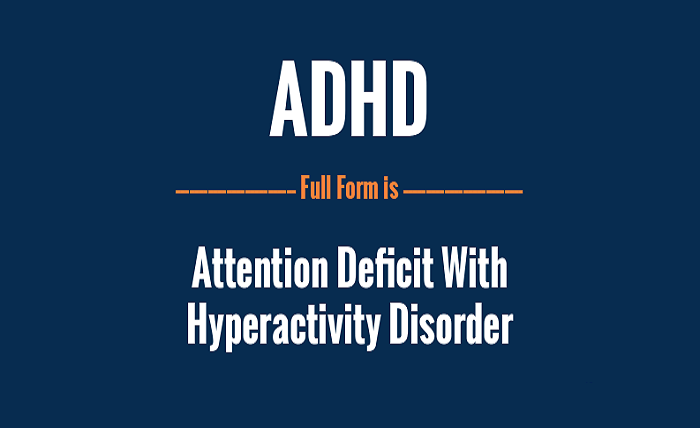Many parents wonder, what is the full form of ADHD? In addition to the short form, the DSM-5 also requires professionals to identify the severity of the disorder. Typically, a child with ADHD will exhibit only mild impairments in social settings. Moderate symptoms fall between mild and severe symptoms result in significant impairments in social settings. These terms have important implications for treating children and adults with ADHD. If you’re not sure if your child has ADHD, seek a professional’s help.
One of the most common symptoms of ADHD is inattentiveness. Children with this condition tend to complete conversations too early or not pay attention at all. They may interrupt conversations and take over activities. Sometimes, these children fail to complete tasks, such as chores or schoolwork. Some symptoms of ADHD in children are more visible than others, but parents should consult their pediatrician to determine if their child has them.
Although ADHD symptoms often subside as a child matures, adults with the condition may also experience symptoms as an adult. While children with ADHD may not recall these problems, their difficulties at school, home, and with friends and family may result in serious consequences. As a result, identifying a child with ADHD is important to preventing further harm and making life better for the entire family. The full form of ADHD is known as Attention Deficit Hyperactivity Disorder, or ADHD.
Drug treatments for ADHD are available in many forms. Stimulants, the most common kind, increase dopamine and norepinephrine, which are key factors in attention and thinking. While stimulants are generally considered safe when used appropriately, they can have unpleasant side effects if misused or taken in excess. To be sure, it’s vital that your doctor monitors your child carefully to avoid overdose and other complications.
Treatment options for ADHD range from psychotherapy to medication. Drugs work to improve attention and impulse control in children and help parents manage the symptoms. Therapy addresses the emotional, social, and behavioral challenges that children with ADHD face. In some cases, psychotherapy may be part of a child’s school program. There are many options available to treat children with ADHD. The best treatment for ADHD is a combination of treatments, so a child’s treatment can be tailored to meet his or her specific needs.
While studies show that ADHD is mostly genetic, there are non-genetic factors associated with it. Premature birth, low birth weight, exposure to toxins, and extreme stress during pregnancy have been linked to the development of ADHD. Children who suffer from ADHD are likely to have a family member with ADHD. And, of course, a child’s environment may also play a role in the development of the disorder.
People with ADHD can experience difficulty in maintaining attention, executive function, and working memory. While these skills are necessary for academic and professional success, they can also result in difficulties completing tasks or forgetting important things. If you’re wondering what the full form of ADHD is, you can consult a doctor and find out more about this condition. The diagnosis may help you improve your quality of life and your overall well-being.

